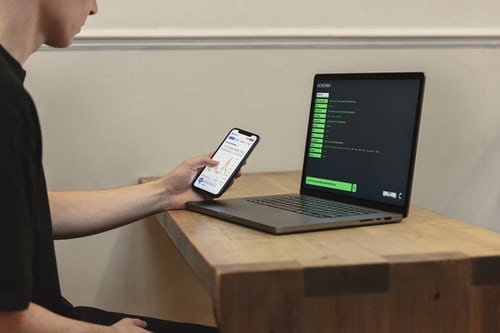Digital assets like non-fungible tokens (NFTs) and cryptocurrencies are a new and exciting frontier for collectors, but many don’t have a plan in place for what happens to their collection when they die.
The NFT world is only beginning to grapple with the issue of how artworks can be passed on to heirs. Many people don’t know how to pass on rights while others still haven’t considered the issue.
This is very important because cryptocurrency is a new currency and there are lots of people who don’t know what to do with it.
If you pass away, and nobody knows about the private keys that unlock the Bitcoin, those coins will be lost forever.
If you hold NFTs or cryptocurrency, it’s important to plan for the possibility that you might die unexpectedly.
Unfortunately, there is no uniform set of laws governing how these assets should be handled if their owner dies. Unlike with banking and investment accounts, most companies holding crypto and NFTs aren’t under any obligation to turn over assets to a person’s heirs or agents.
To make matters more complicated, state laws governing wills and asset distribution may not recognize cryptocurrency as a property that can be bequeathed after death.
As a result, it’s up to individual crypto and NFT investors to plan for what happens to their digital assets after they die.
The Time When $250 Million in Cryptocurrency was Lost When A Man Died
If you own bitcoin or any other cryptocurrency, the only way to access it is with a private key, which is often a 64-digit passcode. If you don’t have a private key, you won’t be able to access the cryptocurrencies.
Many instances have been told about people who bought bitcoin and would be millionaires today if they hadn’t thrown out their hard drive or misplaced their key.
Gerald Cotten, the creator of the Crypto exchange Quadriga, is one such example. When Cotten passed away in 2018, he never bothered to leave behind the secret keys to more than $250 million in client assets.
When someone dies, they either have a will that specifies how their assets will be dispersed, or a government formula specifies how their assets will be split if they die without a will. While a will specifies who should receive what, it generally lacks an up-to-date asset list, as well as passwords or access keys. There are an estimated tens of billions of dollars in unclaimed assets lying in banks today as a result of a family or executor being unaware of such accounts following a person’s death.
Sharing Your Password - Is That Right?
Although sharing your password appears to be the most apparent option, there is another twist. According to Lee Poskanzer, founder of Directive Communication Systems, it can also put your family or executors at risk, pointing out that in many cases, website and app owners explicitly prohibit password sharing in their terms of service, and privacy laws in some jurisdictions prohibit account holder impersonation (this is covered by the Stored Communications and Electronic Communications Privacy Act in the United States). Furthermore, accounts are increasingly requiring two-factor authentication, which may be difficult to complete if heirs do not have control over the deceased person’s mobile.
Digital Wills - The Best Option for Securing Your NFT’s and Cryptocurrencies for You Family
Your best choice is to create a digital will or digital estate plan (or update an existing one) that clearly states who receives which assets and how they can access them. We at Clocr can help you make sure these wishes are legally binding. We are a leading company for structuring digital wills and digital estate plans.
The Revised Uniform Fiduciary Access to Digital Assets Act is a legislative measure that creates a clear hierarchy of instructions for managing a person’s digital assets.
To begin, internet service providers can create an online tool that functions as a digital power of attorney, indicating who has authorization and access to that specific site. RUFADAA also creates a clear legal framework for the definition of digital asset rights in traditional legal instruments.
Not only is this great practice for safeguarding any assets and appointing essential responsibilities such as guardians for young children, but it is also likely to be necessary in order to release any account contents (for example, Coinbase requires a copy of the will as part of its process to release funds to an estate).
As we go through this huge wealth transfer, banks, fintech, crypto exchanges, social media platforms, and other content providers are expected to develop explicit death-management systems that make it simpler to warn people about digital assets before you die and offer straightforward access instructions. But, until that happens, following these procedures ensures that your assets go to your family and to whomever you want them to go.
Clocr- To Make Sure Your Bitcoins End Up with your loved ones
Investing in Cryptocurrency is simple, but planning for its future and security can perplex investors. Digital Estate Planning is a process that can help Cryptocurrency holders to organise and update Digital Assets (email accounts, blogs, social media accounts, photo libraries, cloud storage accounts, etc.) so that after sudden demise or incapacitation of the Cryptocurrency account owner, the beneficiaries have one place to go and access, manage, or close digital accounts according to the wishes of the deceased person.
Clocr makes it simple to create and manage a Digital Estate Plan, allowing you to safeguard assets of personal and financial value to you and your family.
With Digital Estate Planning, which is focused on satisfying the security and legal requirements of Digital Assets, the process of prioritising, organising, and drafting out your desires for your NFTs or Cryptocurrencies becomes very simple and you go to a sound sleep knowing your family is protected.




